5 things you probably missed from Google IO 2021
The Google IO 2021 keynote hid several exciting news nuggets.
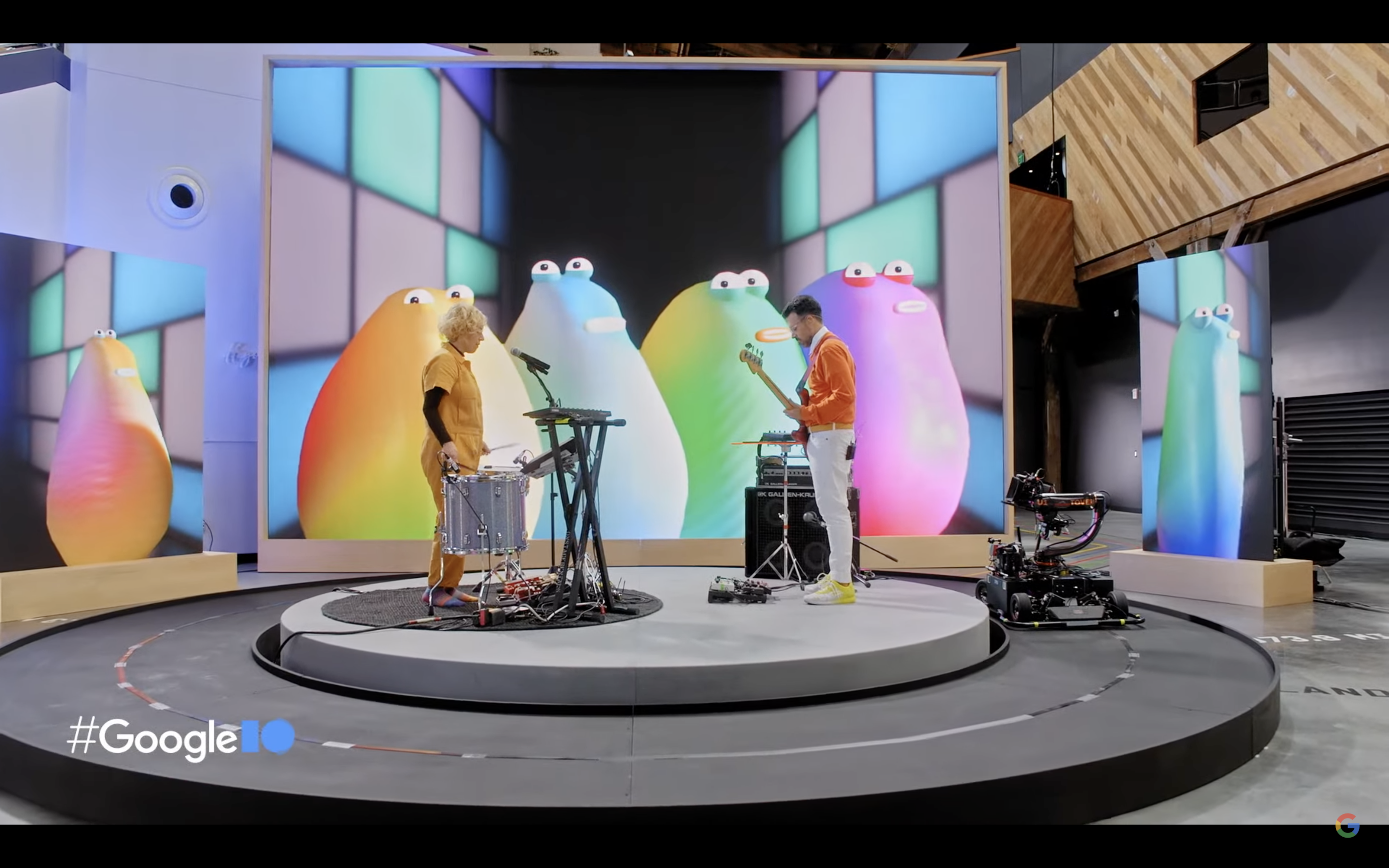
The Google IO 2021 keynote is over, and we heard a lot about Android 12, Wear OS, Search, and other Google software products. You’ve probably seen some of the big announcements, but here are 5 things you probably missed during the two-hour announcement event.
Some of these new features are for widely-used software, like Google Maps, which is adding crosswalks and stoplights, suggesting restaurants in the map area similar to what a user has selected, and expanding Street View Live with street names and depth directions inside public transit centers. These features will be rolling out in the coming year, and we expect users to discover them on their own.
But you may have missed announcements on other Google services, products, and software. Here are 5 things you missed from Google IO 2021:
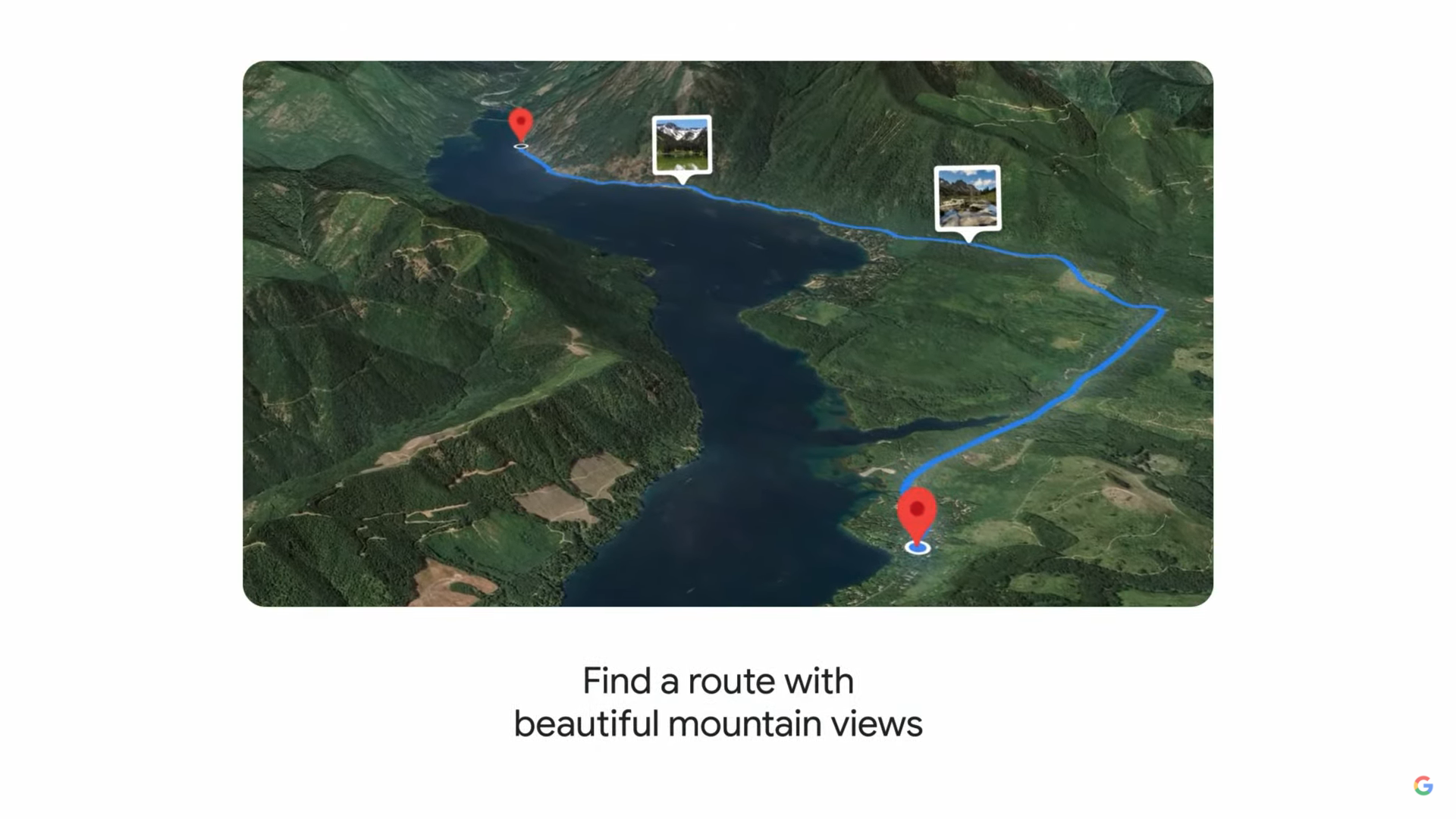
Google Search: smarter multi-modal query responses
Google Search is getting smarter all the time, but at Google IO 2021, presenters identified several ways it’s going to help users in the near and not-so-near future. One health-related feature lets users upload a trio of images of concerning parts of their skin, hair, or nail and Search, within a browser, will quickly analyze and scan the web to surface results for over 288 dermatological issues. This feature could come to Search by the end of 2021.
While Google did highlight how Search is returning smarter query results thanks to its AI-assisting BERT tech today, other new features are deeper in development, like a multi-modal search that takes user queries and consults text, images, audio, and video to surface very contextually rich answers.
As demonstrated in the presentation, users can search for ‘a Google Maps route with pretty views of mountains’ and Search will cross-reference possible routes with images located along the way; or in another example, users can ask for ‘the part in this particular video with the lion in front of a sunset,’ and voila, Search produced a timestamp satisfying that criteria.
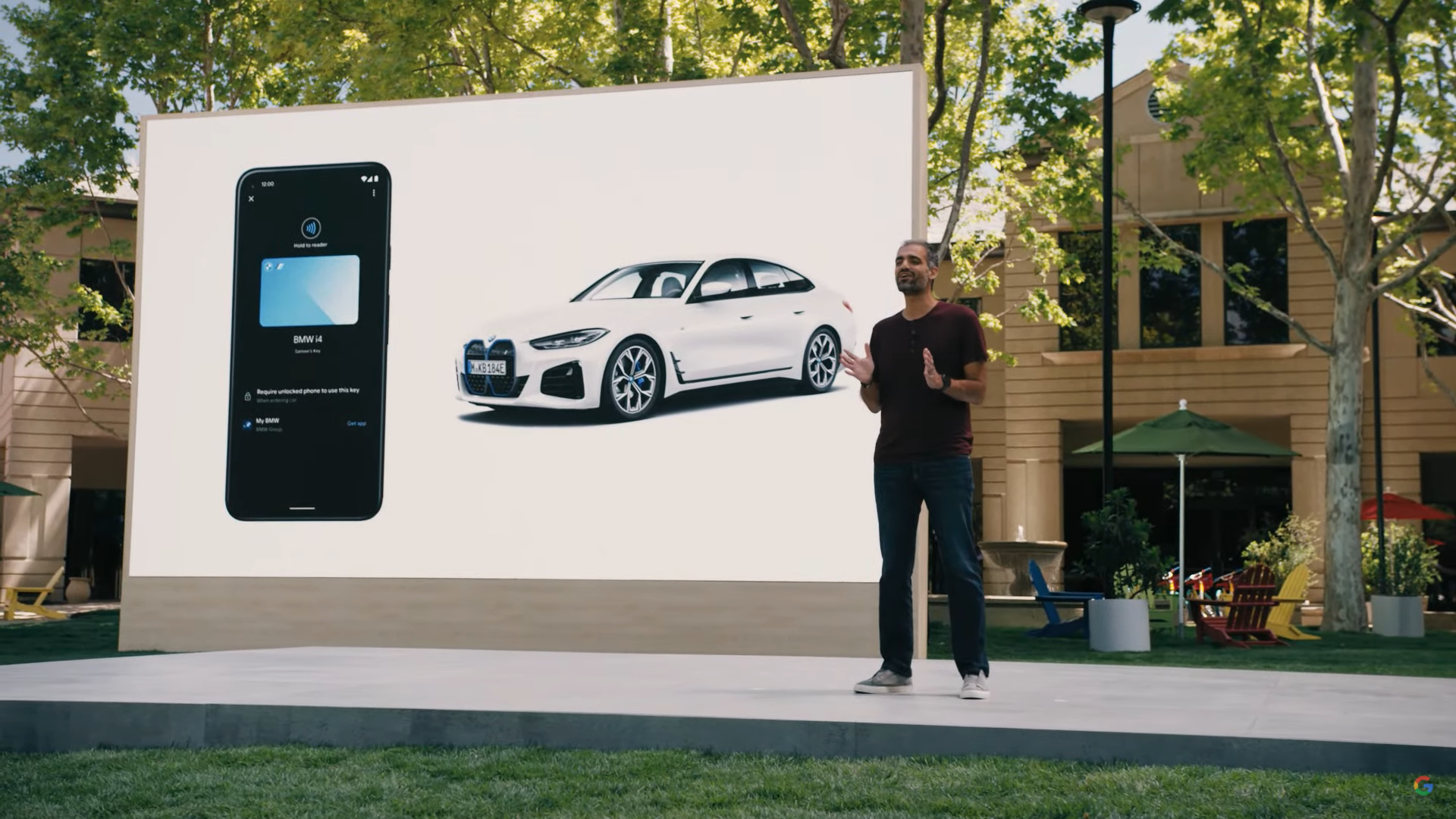
Android Auto letting you give an unlock code to friends
Android Auto has teased remote unlocking your car using your Android phone via NFC and ultra-wideband (UWB) for awhile, though it’s only worked with a limited number of vehicle models. Now there’s an addendum to that feature: users will be able to loan out Digital Car Keys to a trusted friend or family member to unlock a linked vehicle.
Get daily insight, inspiration and deals in your inbox
Sign up for breaking news, reviews, opinion, top tech deals, and more.
Details are a little hazy, but this potentially allows someone to pick up your vehicle or grab something from it if you can’t hand them keys yourself – like if you’re out of town or forgot to hand off the keys. This feature is headed to Pixel and Samsung Galaxy phones this fall (Q3 2021).
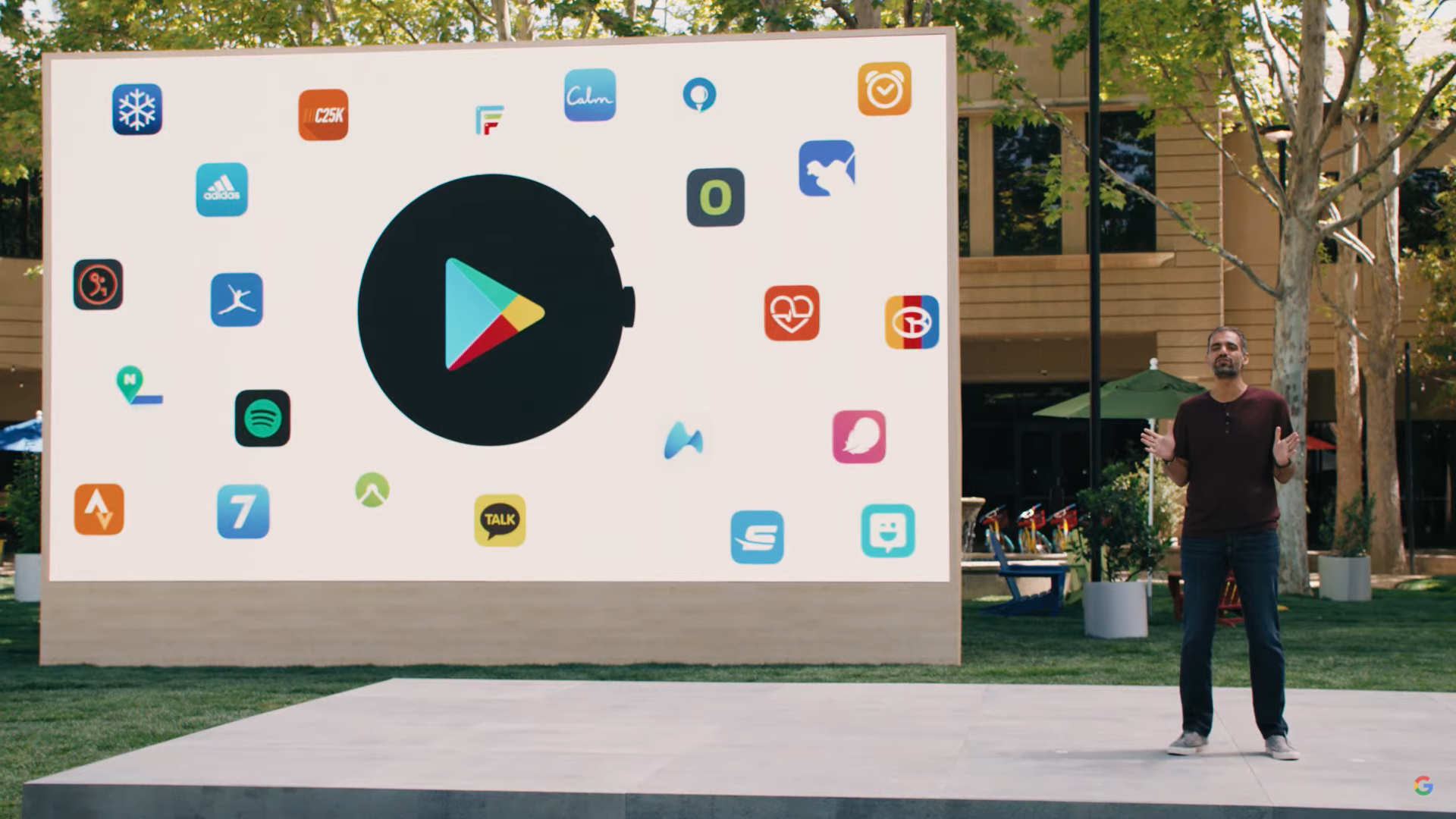
That big Wear OS update – and partnership with Samsung Tizen
It’s no secret that Google hasn’t updated Wear OS in awhile, so this batch of new features is certainly welcome – though we still have a lot of questions for how they’ll be implemented. That’s because a host of upgrades – 30% faster app starting, better battery life, and smoother app transitions – seem to be tied to a partnership between Google and Samsung to combine ‘the best’ of both Wear OS and Tizen smartwatch operating systems.
We do know that the Samsung Galaxy Watch will get access to the Play Store and Google Maps, and Tizen features will be available for all device-makers. Speaking of partnerships, Fitbit, which was acquired by Google in early 2021, will contribute its health tracking and fitness celebrating features to Wear OS. The company will also design new smartwatches that will be based on Wear OS.
More broadly, there are a ton of back-end upgrades teased at a Wear OS developer session promising faster task switching, a function to return to the most-used app by double-tapping a smartwatch's function button, a Google Maps update that allows offline navigation, more robust health information shared across apps through APIs, easier ways for appmakers to build Tiles, expansion of Google Pay for Wear to more countries and metro areas, and even color-matching your other Android devices via Android 12’s new cross-platform Material You synchronization.
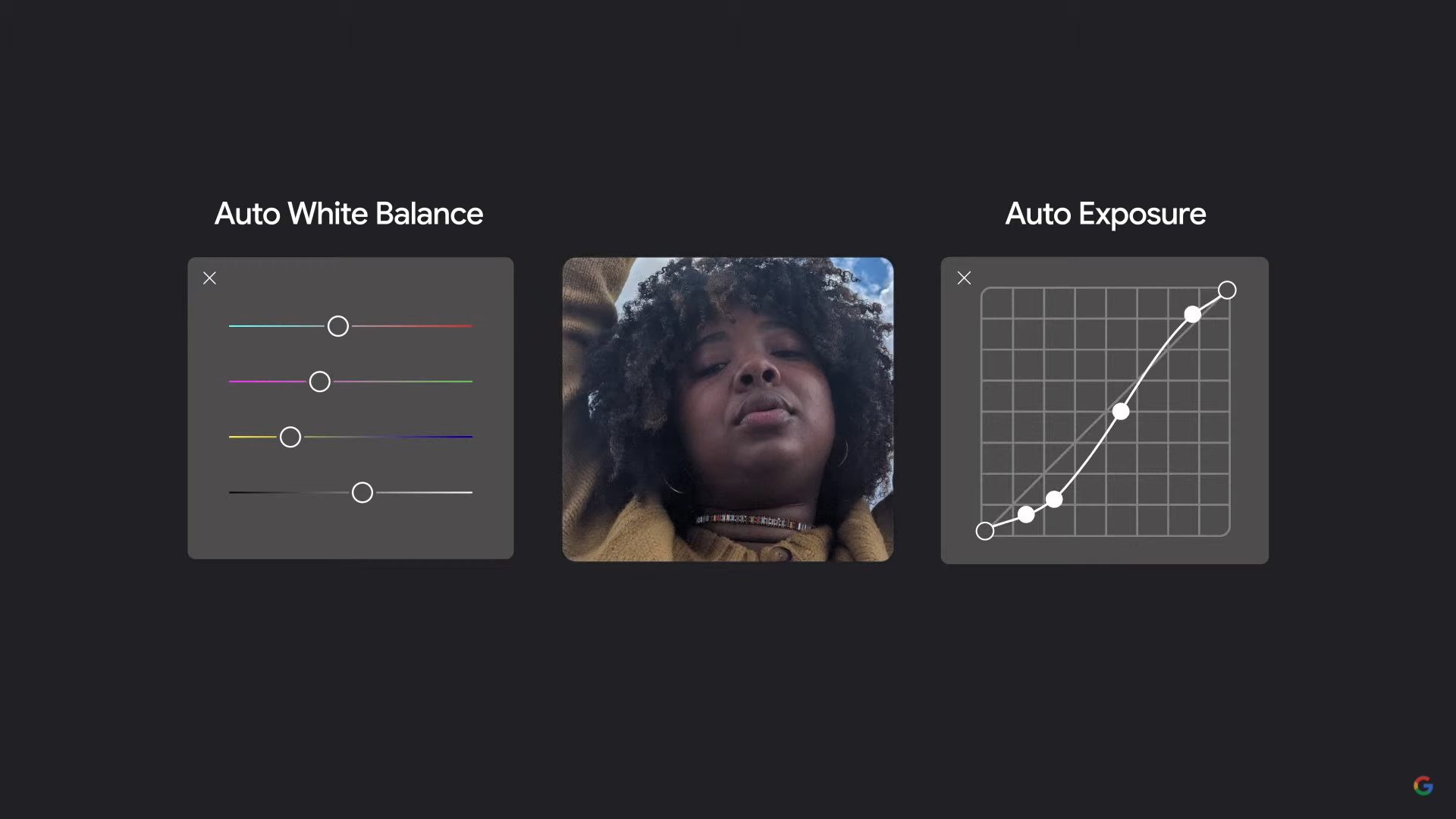
Better AI for PoC photography and categorization
Google Photos can automatically edit your pictures to look ‘better’, but the AI algorithms for this didn’t always take skin tone into account, leading to unflattering photos for people of color.
To resolve this, Google says it teamed up with dozens of ‘expert image makers’ to improve its AI and make it more equitable instead of prioritizing lighter-skinned subjects. The auto-white balance and auto-exposure of your Google Photos should now better match your actual appearance.
Google also claimed that it has drastically improved its algorithms for categorizing your photos. It uses what it calls ‘Little Patterns’ to note repeating objects, faces or other details between your photos, then groups them together into Memories for you to enjoy. And it computes this on your device, so you don’t need to worry about Google analyzing your photos in the cloud.
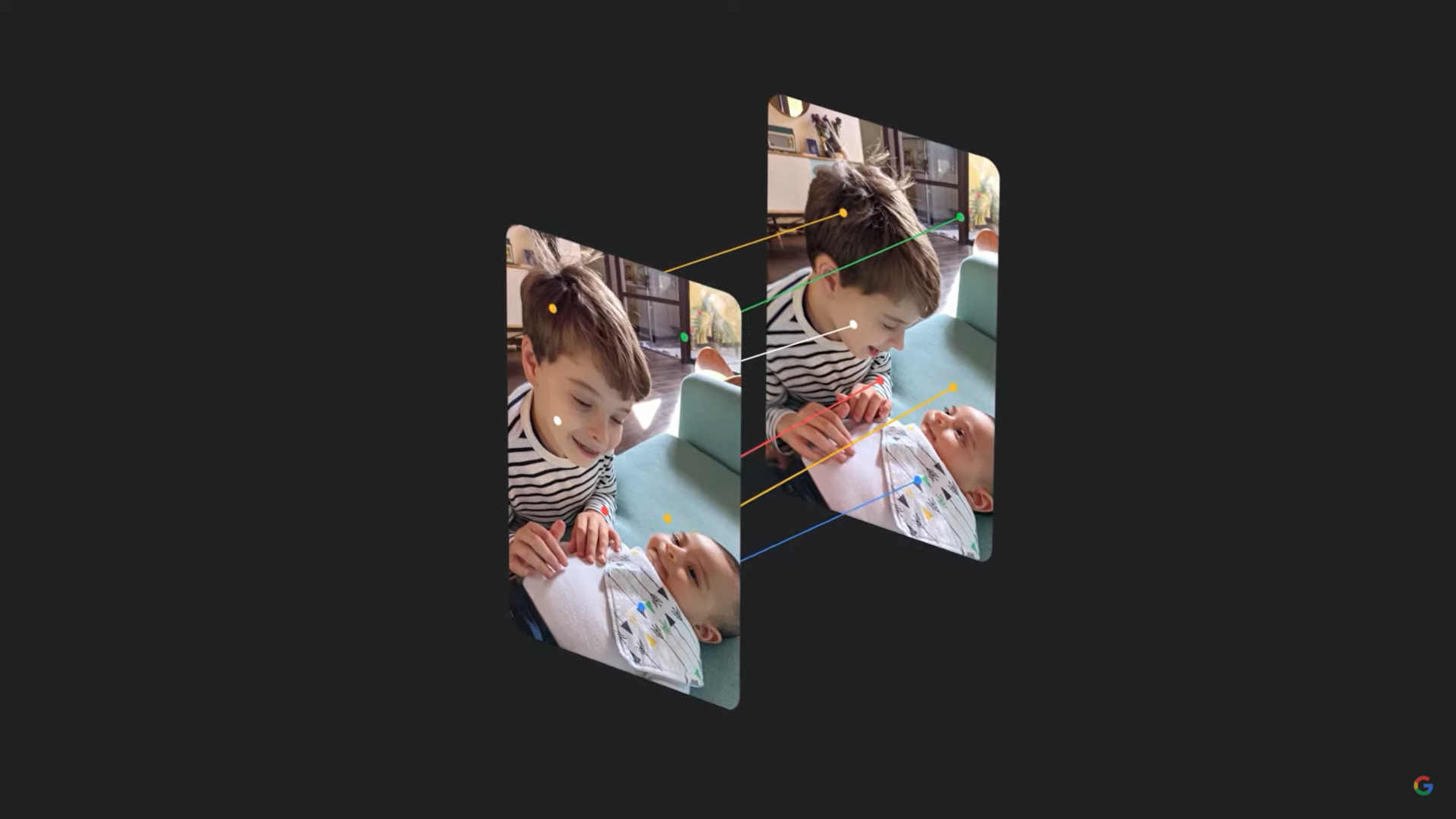
The other new photo technology is Cinematic Photos, which was introduced in December 2020 and which one Techradar writer called ‘seriously problematic and creepy as hell’. Google’s AI will turn two of your photos into an animated gif, using machine learning to fill in the gaps with an impressive deepfake.
Finally, Google added a Locked Folder to Google Photos where you can place photos that you don’t want to see in your main feed or memories, but also don’t want to delete. Access to the folder requires a fingerprint or PIN code or whichever authentication you use to unlock your phone.
Improved privacy tracking and computing
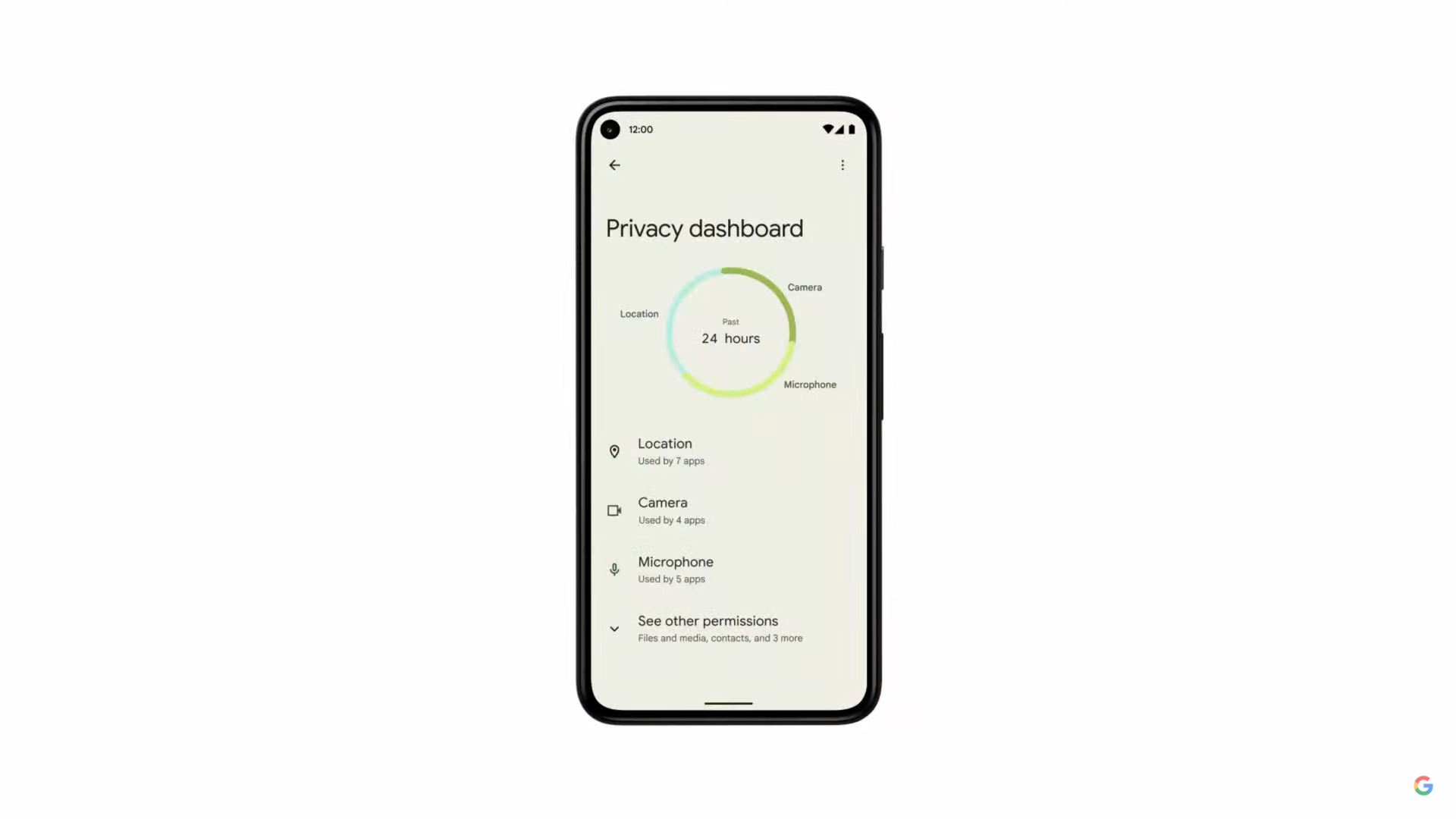
Apple made a big splash with its recently-released App Tracking Transparency tools, so Google took some time today to emphasize its own privacy features. Its new Privacy Dashboard is fairly similar in concept: it tells Android phone owners which apps accessed their location, camera or microphone in the last 24 hours complete with a timeline, so you can remove that access at any time.
Google also wants to replace the password manager industry with its own service. You can now import your .csv file from other managers to move all your old passwords to Google, then have access to them across your Android apps or Chrome pages. You’ll get automatic password alerts if your data becomes compromised from a known site breach; and then Chrome Quick Fix will take you directly to a form where you can change your password for the site almost instantly.
Google also made it the default that any web and app activity associated with your Google account would be ‘auto-deleted’ after 18 months. You can even delete the last 15 minutes of your search history at any time.
The other big privacy update is the Android Private Computing Core. It ensures that any personalized information on your phone is generated on your device using machine learning, so your data never goes to the cloud. Google used the examples of Smart Replies for texting, automated captions on your private videos, and a Now Playing feature on your lock screen.
- Stay on top of tech news with the TechRadar newsletter
David is now a mobile reporter at Cnet. Formerly Mobile Editor, US for TechRadar, he covered phones, tablets, and wearables. He still thinks the iPhone 4 is the best-looking smartphone ever made. He's most interested in technology, gaming and culture – and where they overlap and change our lives. His current beat explores how our on-the-go existence is affected by new gadgets, carrier coverage expansions, and corporate strategy shifts.
